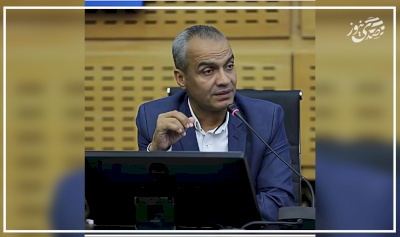
Between Unloadable Videos and Endless Siege: Lessons in Palestinian Patience

(You are the one who decides if the saying applies to you or not) We live today in a time where moments accelerate to the point that they almost slip through our fingers, a time where waiting has become an unwanted burden, and patience a rare commodity. We prepare food or order it in minutes, watch the news in seconds, and switch from one idea to another as if we are swiping a screen with a finger. But behind this frantic pace, a deep human question lurks: do we still have the ability to control this fast tempo, or to give things time to ripen, and emotions time to stretch to make a difference? In the era of digital modernity, there is no place for waiting in the details of our daily lives. Just press a button on the phone, and what we want arrives within minutes, or swipe our finger to change a video before it ends. This way of living has shaped our consciousness around the principle of instant gratification and weakened our ability to be patient and wait, while there are many aspects of life that can only be attained through perseverance and endurance. Here, I recall the famous saying of Tawfik al-Hakim: "It is not the strength of emotions that creates greatness, but their duration," as a cry against the tyranny of the urgent moment and the absence of patience, as greatness does not arise from fleeting excitement, but from emotions and efforts that extend over time. Many studies have indeed proven the depth of the problem, for example, who among us finishes reading the long terms required to download a particular app on their phone? In a broad analysis of millions of views, it has been found that users start to abandon a video if it takes longer than a few seconds to load, and the likelihood of dropping out increases with each additional second. This behavior illustrates how technology has reshaped our nerves to hate waiting, even biologically hastening it. The problem does not stop at the moment of viewing; it extends to the mere presence of the phone in our hands; laboratory experiments have shown that just having the phone on the table— even when it is silent— reduces cognitive ability and attention compared to those who have completely removed it from their field of vision. We live in an environment saturated with distractions that rob us of the "duration" that the sage speaks of. Perhaps the most famous experiments that addressed the value of patience is the "Marshmallow Test," where children were given the choice between an instant candy or a bigger reward later if they waited. Later, success in this test was linked to children's ability to self-regulate and achieve better outcomes in the future. Although recent research has shown that social and environmental factors greatly affect the results, the essence of the message remains: the ability to delay gratification is a vital life skill. In contrast, what social media and fast videos cultivate in us is exactly the opposite; they train us to transition continuously from one content to another, which increases boredom and weakens satisfaction and makes it difficult to endure long-term projects or engage in deep thinking. Thus, the words of the sage summarize our modern crisis: we do not need a fleeting emotional spark as much as we need a continuous flame of patience and attention. Perhaps the solution lies in re-engineering our relationship with time and technology; among the simplest measures is to put the phone away during work or study, to provide environments with fewer distractions, and to treat accomplishments as an extended project rather than a series of instant emotional reactions. We can also re-establish practices that enhance purposeful slowness, such as dedicating time to read a single work, contemplating a piece of art, or completing a complex task without interruption; these are not luxuries, but practical training on lengthening the span of attention and patience. Modernity is not an enemy of patience unless we allow it to be so. We can benefit from the speed of access that technology provides, but we are equally required to protect the ability to be deliberate and to nourish the "duration" of emotions and efforts, for they alone create greatness and creativity. Creativity is not a fleeting spark that disappears as quickly as it appears, but a quiet flame that remains lit as long as we know how to wait. Perhaps the Palestinian today understands better than anyone else what Tawfik al-Hakim meant when he said: "It is not the strength of emotions that creates greatness, but their duration." In the shadow of occupation, siege, and limited resources, resilience is not a fleeting moment of enthusiasm, but a long journey of waiting, quiet work, and holding on to hope. We plant knowing that the harvest may be delayed, we build our projects aware that obstacles may recur, and we dream of a free state knowing that the road to it is arduous and long. Therefore, patience becomes not just a virtue, but a life strategy, and deliberation is not a luxury, but a weapon for survival. Modernity may tempt us to hurry, but our cause teaches us that what is earned through patience endures, while what is built on haste collapses at the first gust of wind.